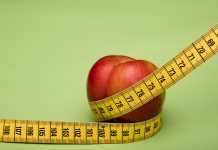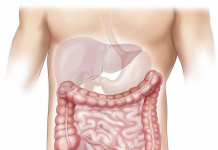A few years ago, everyone was crazy about carbohydrate diets. Later, carbohydrate diets were highly criticized. It seems that the pendulum has finally stopped swaying: dietitians agreed that the optimal diet for a smooth and safe weight loss is a ketogenic diet.

The ketogenic diet (aka ketone diet) is the most popular, discussed, and mysterious type of diet for weight loss. Progressive public actively lose weight, eating home-made mayonnaise, and in glamorous restaurants, you can even order a keto-burger, which is a juicy cutlet without a bun and other excesses. Scientists have published a new research, proving the benefits of an unusual menu that triggers the process of getting energy from fats rather than carbohydrates, but not all weight loss experts rush to trust the fashionable dietary fad. The truth is, as usual, somewhere near.
The ketone diet changes the enzyme and hormonal machinery of our body in such a way that the production of the insulin hormone reduces (it regulates blood glucose levels) and, consequently, the feelings of hunger and satiety decrease.
The ketogenic diet for weight loss
Let’s start with the main thing: a ketogenic diet is a diet with high-fat content. The second point is that the ketogenic diet is officially recognized as a health-improving one. Finally, the third point is that the ketogenic diet menu can be prescribed only individually, and only by a doctor. Only and exclusively. We will just tell you how this diet works, what its effect on the digestive tract is, and what principles of nutrition lie at its base.
For normal functioning, our body needs glucose. It cannot be produced independently but is obtained from carbohydrates, supplied with food. The organism forms a small reserve of glucose in the liver and muscles, but it is only enough for as much as one day.
What happens if you stop using carbohydrates and deprive the body of a glucose supply?
 If the body gets enough protein, it will split it and extract glucose from there. If the protein is not enough (do not rush to swear: we’ll explain it in more detail below), the body finds a substitute for glucose: ketones. These are substances that supply the body with the energy better, stimulate the brain, do not affect the state of the muscle mass and completely exclude failures in insulin production, which is often referred to by dieticians as a side effect of many diets.
If the body gets enough protein, it will split it and extract glucose from there. If the protein is not enough (do not rush to swear: we’ll explain it in more detail below), the body finds a substitute for glucose: ketones. These are substances that supply the body with the energy better, stimulate the brain, do not affect the state of the muscle mass and completely exclude failures in insulin production, which is often referred to by dieticians as a side effect of many diets.
Where do these magic ketones come from?
Now, this is the most interesting thing. When there is a shortage of glucose, our own liver begins to produce ketones … processing fat deposits. Our fat deposits, of course.
The ketogenic diet involves eating foods with a very high-fat content (animal fats and some vegetable oils) or animal proteins with very low carbohydrate content.
You’ll never feel hungry
The general principle is 4 parts of fat to one part of proteins and carbohydrates.
Let me remind you once again: exact recommendations, the balance of protein, fat, and carbohydrates, and specific food products will be prescribed by a nutritionist, depending on the ratio of the muscle and fat mass in your body, your lifestyle, habitual intake, and consumption of calories, age, hormonal background, physique and other factors.
What to eat and how much is enough? Foods for a high-fat ketone diet
 Different variations of the ketogenic diet suggest that you eat no more than 50 grams of carbohydrates per day. The diet suggests focusing on the relative amount of food rather than the weight of food, creating a daily menu of 70% fat, 20% protein and 10% carbohydrates. Special attention should be paid to water-soluble fiber and stable forms of starch, for example, from raw potatoes or unripe bananas.
Different variations of the ketogenic diet suggest that you eat no more than 50 grams of carbohydrates per day. The diet suggests focusing on the relative amount of food rather than the weight of food, creating a daily menu of 70% fat, 20% protein and 10% carbohydrates. Special attention should be paid to water-soluble fiber and stable forms of starch, for example, from raw potatoes or unripe bananas.
Here is an approximate list of products that contribute to the emergence and maintenance of ketosis. The following ones can be used without any restrictions:
- fatty dairy and sour-milk products (except whole milk and kefir)
- pork fat, bacon, Iberian ham, rib steak, brisket, lard
- meat, poultry (with skin),
- seafood and fish
- eggs
- fatty cheeses with a minimum of carbohydrate components (see the composition of a specific product)
- avocado
- green vegetables
- mushrooms
- tofu
- shirataki noodles
- butter and unrefined vegetable oils, including hardening nut oils (coconut, shea, etc.).
 The following ones are allowed in minimum quantities:
The following ones are allowed in minimum quantities:
- berries and nuts
- chocolate (the darkest, with a minimum of sugar)
- unsweetened fruit
- root crops (they can be used mostly raw, as a non-core component of complex dishes).

Completely excluded from the menu are the following products:
- sugar,
- honey,
- pastry,
- industrial drinks
- sauces with sugar and thickeners
- bread,
- cereals,
- baked products
- paste (except shirataki)
- dried fruits
- low-fat products
- margarine and vegetable spreads (although we do not recommend them to anyone).
While keeping to a high-fat keto diet, you need to drink a lot of plain still water, tea and coffee (additives may include a lemon) and even light spirits, for example, dry cider, dry wine, and light beer.
What else is important to know about the ketogenic diet?
On the first day, you will have to starve and drink only water, so that the body can completely exhaust the stores of glucose.
Next, for 2-3 days, you can eat only proteins and fats: boiled eggs, cottage cheese with fatty sour cream, fatty fish, avocado, and nuts. Beginners often lean on eggs or an omelet with bacon: a great option!
For the remaining 3 days, vegetables, poultry, fatty meats, and cheeses will be allowed.
A week later, it is recommended to interrupt the ketogenic diet, so that the body regains carbohydrate metabolism and regenerates itself. The cycle can be repeated 2-3 times to achieve the desired body weight.
Who is the ketogenic diet prescribed to?
 The ketogenic diet was originally a curative diet prescribed for health reasons: to combat epilepsy, Alzheimer’s disease, and other ailments. Then marketers paid attention to it, considering this diet another new trend that can be popularized. After all, the ketogenic diet is a dream rather than a diet: eat your favorite proteins and fats and remain thin at the same time. The main enemies of being slim – carbohydrates – should be excluded or minimized.
The ketogenic diet was originally a curative diet prescribed for health reasons: to combat epilepsy, Alzheimer’s disease, and other ailments. Then marketers paid attention to it, considering this diet another new trend that can be popularized. After all, the ketogenic diet is a dream rather than a diet: eat your favorite proteins and fats and remain thin at the same time. The main enemies of being slim – carbohydrates – should be excluded or minimized.
But it’s not that good. Like any diet, the ketogenic diet has contraindications.
The Ketone diet contraindications
A ketone diet is a stressful diet with a lot of contraindications, and you can keep to it up to 10 days at maximum.

When fat stores become the main source of energy, you really can lose weight for a while. However, there are a number of risks, when it is not recommended to take up the ketone diet for some reasons other than medical ones.
Just as we adapt to a carbohydrate diet, our bodies have the ability to develop when carbohydrates are limited. The body can use carbohydrates, proteins and fats for energy, depending on what is available. But it is important to understand that each source of energy causes different effects in the body.
A low-carb diet causes you to lose vital minerals and fluids, which can lead to fatigue, weakness, headaches, dehydration, constipation, or diarrhea. That is why it is important to increase the consumption of water, salt and minerals.

In addition to the threat of dehydration and loss of minerals, it is important to consider such problems as poor breathing and intestinal health.
Most side effects will disappear after a few weeks.
Bad breath is an unfortunate side effect of ketosis, but it will disappear when the body adapts to the byproducts of ketosis. Usually, it happens in a couple of weeks.
Side effects of the ketone diet
 Problems with the intestines, such as constipation, can occur when your diet lacks fiber from non-starchy vegetables, nuts, and seeds. The fact that you do not eat a lot of carbohydrates does not mean that you should eat only meat. Make sure that each dish contains the foods high in fiber to help maintain your bowel health.
Problems with the intestines, such as constipation, can occur when your diet lacks fiber from non-starchy vegetables, nuts, and seeds. The fact that you do not eat a lot of carbohydrates does not mean that you should eat only meat. Make sure that each dish contains the foods high in fiber to help maintain your bowel health.
Long-term side effects are much less common, but if you experience fatigue and weakness that are not related to loss of minerals or dehydration, it is important to check your thyroid gland.
In general, you will experience minor side effects, if your diet contains enough fat, protein, salt, water, fiber, vitamins, and minerals.
So, if this idea appeals to you, go to a nutritionist for an individual consultation and fight your extra weight!










